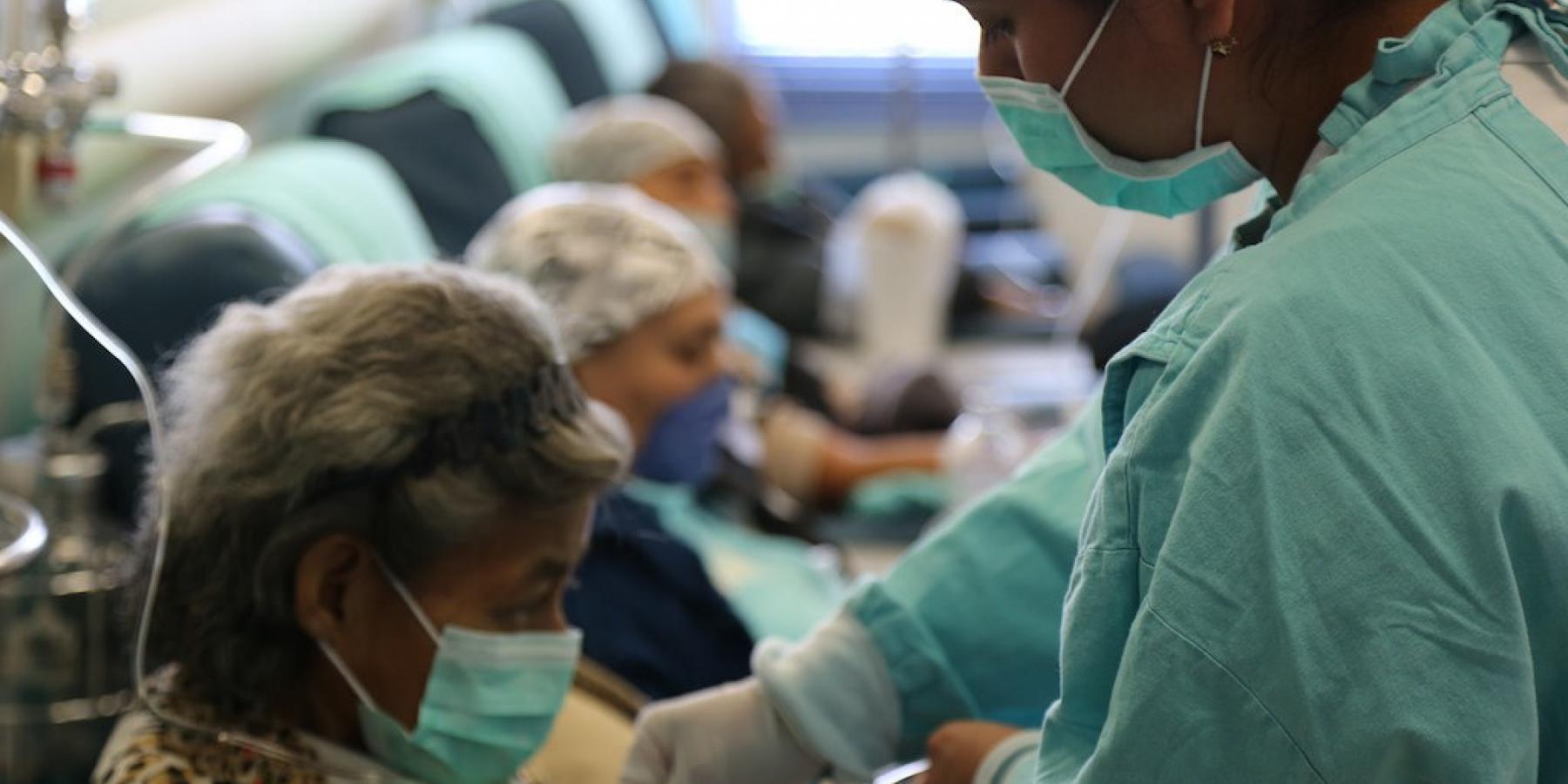On the road to 2025: civil society perspectives on progress and challenges in cancer control
23rd May 2017

23rd May 2017
But the questions remain, how far have we really come since 2008 and what challenges must we urgently address if we are to make real progress on our journey to 2025?
UICC partnered with our global network of members to develop the World Cancer Declaration Progress Report highlighting the current state-of-play in cancer control for launch at the 2016 World Cancer Congress. We asked members to reflect on cancer control progress in their country and share good practice, as well as key challenges in responding to the cancer burden. The willingness and interest of our members to engage in this exercise was overwhelming, with over 180 organisations contributing towards 113 country reports spanning all income levels and geographical regions.
Despite the differences in resource settings, political, social and cultural contexts, a majority of country reports echoed the same successes, stumbling blocks and challenges on the road to 2025:
National action to control tobacco use: Members highlighted the impacts of increased tobacco tax and advertising bans and smoke-free spaces nationally in helping to change national attitudes. In particular, UICC members celebrated the introduction of plain packaging in a growing global movement across Norway, Sweden, New Zealand, Ireland, Canada and the UK. Despite these positive trends, much remains to be done to ensure full implementation of the FCTC and to tackle other leading cancer and NCD risk factors.
Tackle obesity, alcohol consumption and low physical activity: From Sri Lanka and Taiwan to Germany, Sweden and the UK, UICC members indicated these as growing national concerns, and shared examples of current efforts: 16 countries highlighted successes in implementing sales and pricing policies to reduce alcohol consumption, while 29 countries identified steps they were taking to improve public awareness and increase physical activity to tackle obesity. In one example, the Slovak League Against Cancer teamed up with the local public health body to educate students and their patients about the need for physical activity and to reduce alcohol consumption, while in Dominica and Mexico sugar taxes have been levied.
Improving access to diagnosis, early detection, treatment and care: Our members expressed the same frustration that, while their country may have a cancer control plan, it is neither fully funded nor implemented. Identified areas of weakness were the shortage in trained healthcare professionals to deliver education and care, and poor access to treatment facilities. To work toward resolving this, in Chile, the government has established a training pipeline for healthcare specialists across all the disciplines needed to deliver effective cancer in partnership with national universities, hospitals and professional societies. In Mali, civil society groups have formed a partnership to train oncologists to deliver care, and general practitioners to identify cancer cases earlier and refer patients through to the treatment they need.
Over recent years, access treatment for cancer has become synonymous with debates around the cost of cancer medicines, but effective cancer care requires multiple disciplines including radiotherapy and surgery. This has fed the misconception that cancer is too complex and costly to implement, and so it was fantastic to see the strides that countries have been making to improve access to care. In total, 22 countries reported success in introducing/improving access to radiotherapy. In Iran, a dedicated insurance programme now covers 95% of the population to access medicines, radiotherapy and surgery for cancer, while in Haiti a network of cancer centres has been developed to quickly conduct pathologies and initiate chemotherapy treatment.
As a global NCD community, we still have a long way to go to achieve the 25 by 25 targets. The World Cancer Declaration reports made clear that no single government, organisation or health community can achieve this alone. Together, with its members and partners, UICC has strongly supported the call for an updated cancer resolution, set to be discussed at this month’s World Health Assembly, that would provide governments with best-practice guidance in establishing the core disciplines and services for a holistic and impactful cancer response.
While to the outsider, this may sound like a dry update to an existing document, for cancer and NCD advocates we hope it offers an opportunity to leverage renewed commitments and forge new partnerships for national action. What is also new about this resolution, and critical for the NCD community, is the emphasis on integration of cancer efforts across national health plans and the call for scale up of activities in the line with the Sustainable Development Goals. We have a clear opportunity to cement our relationships with other health communities like those for women, children and adolescents, and HIV/AIDS. Time and again, successful initiatives have been made possible where UICC members partnered with others to make the best use of the resources available to meet the patients as a whole, rather than as an individual disease or condition.
Rosie Tasker is a young global health professional with a keen interest in cancer, NCDs and climate change. Rosie is based in Geneva, Switzerland as the Advocacy and Networks Assistant for the Union for International Cancer Control (@UICC) after completing her Masters in Global Health from UCL.